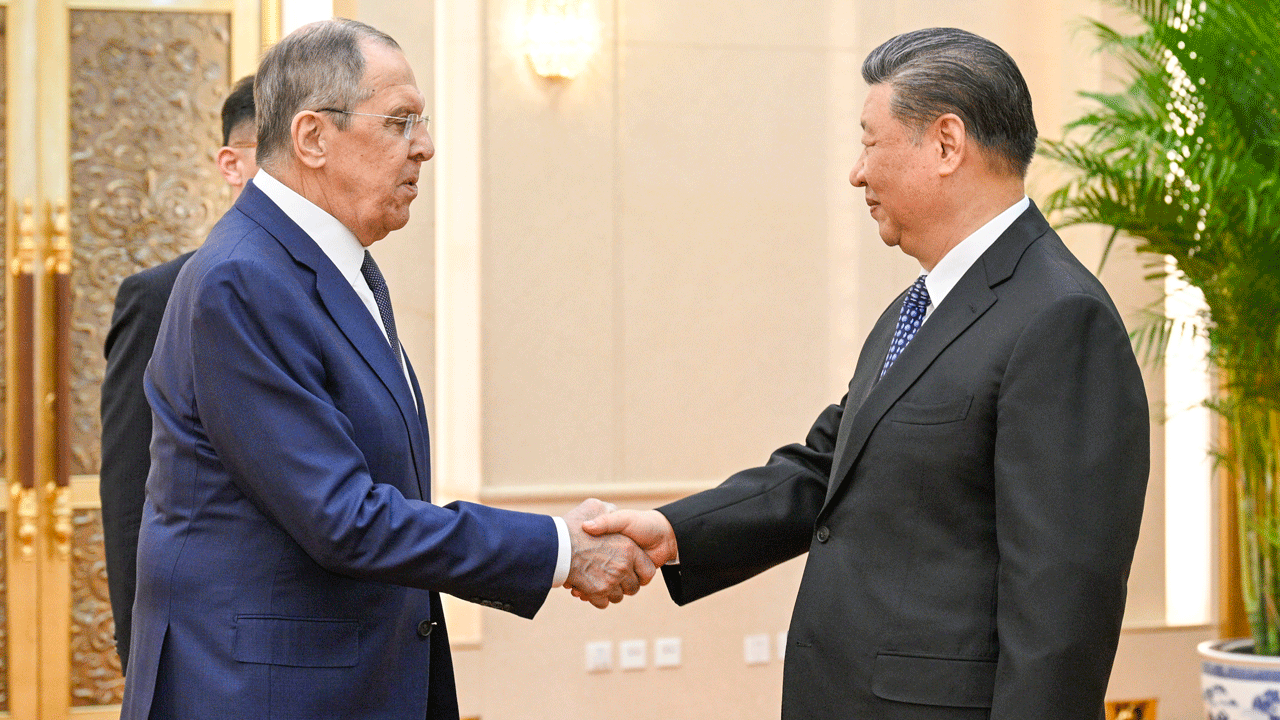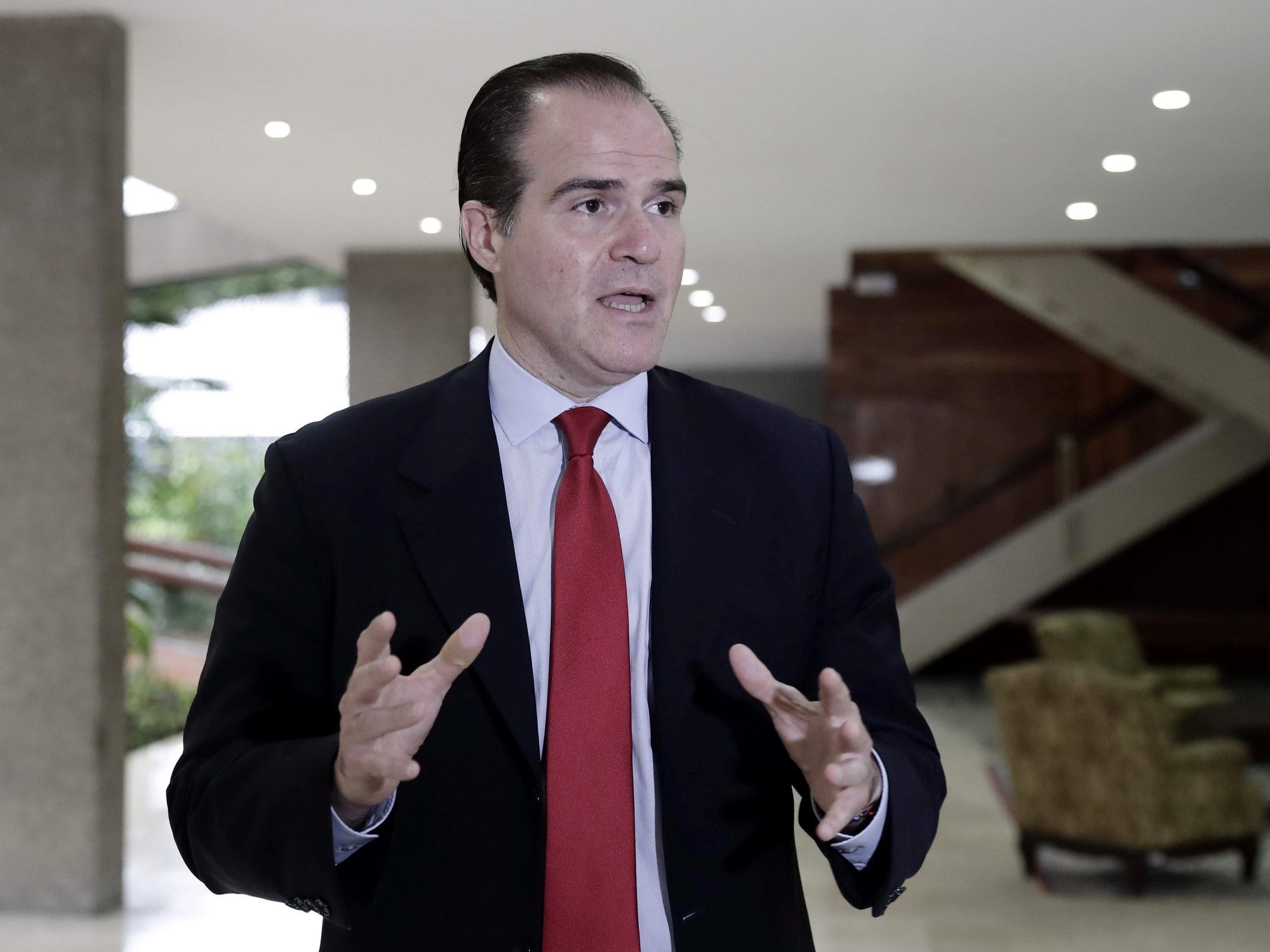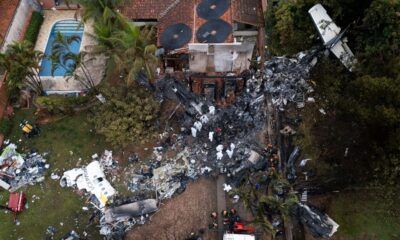INTERNACIONAL
US intelligence finding shows China surging equipment sales to Russia to help war effort in Ukraine

WASHINGTON (AP) — China has surged sales to Russia of machine tools, microelectronics and other technology that Moscow in turn is using to produce missiles, tanks, aircraft and other weaponry for use in its war against Ukraine, according to a U.S. assessment.
Two senior Biden administration officials, who discussed the sensitive findings Friday on the condition of anonymity, said that in 2023 about 90% of Russia’s microelectronics came from China, which Russia has used to make missiles, tanks and aircraft. Nearly 70% of Russia’s approximately $900 million in machine tool imports in the last quarter of 2023 came from China.
US HOUSE FOREIGN AFFAIRS COMMITTEE HEAD SAYS PARTNERSHIP BETWEEN CHINA, RUSSIA IS GREATEST THREAT SINCE WWII
Chinese and Russian entities have also been working to jointly produce unmanned aerial vehicles inside Russia, and Chinese companies are likely providing Russia with nitrocellulose used in the manufacture of ammunition, the officials said. China-based companies Wuhan Global Sensor Technology Co., Wuhan Tongsheng Technology Co. Ltd. and Hikvision are providing optical components for use in Russian tanks and armored vehicles.

In this photo released by Xinhua News Agency, Russian Foreign Minister Sergey Lavrov, left, and Chinese President Xi Jinping meet at the Great Hall of the People in Beijing on April 9, 2024. China has surged sales to Russia of machine tools, microelectronics and other technology that Moscow in turn is using to produce missiles, tanks, aircraft and other weaponry. That’s according to two senior Biden administration officials who discussed the sensitive findings on the condition of anonymity. Russia’s microelectronics came from China, where Russia has used missiles, tanks and aircraft. (Li Xueren/Xinhua via AP)
The officials said Russia has received military optics for use in tanks and armored vehicles manufactured by Chinese firms iRay Technology and North China Research Institute of Electro-Optics, and China has been providing Russia with UAV engines and turbojet engines for cruise missiles.
Russia’s semiconductor imports from China jumped from $200 million in 2021 to over $500 million in 2022, according to Russian customs data analyzed by the Free Russia Foundation, a group that advocates for civil society development.
Beijing is also working with Russia to improve its satellite and other space-based capabilities for use in Ukraine, a development the officials say could in the longer term increase the threat Russia poses across Europe. The officials, citing downgraded intelligence findings, said the U.S. has also determined that China is providing imagery to Russia for its war on Ukraine.
The officials discussed the findings as Secretary of State Antony Blinken is expected to travel to China this month for talks. Blinken is scheduled to travel next week to the Group of 7 foreign ministers meeting in Capri, Italy, where he’s expected to raise concerns about China’s growing indirect support for Russia as Moscow revamps its military and looks to consolidate recent gains in Ukraine.
President Joe Biden has previously raised his concerns directly with Chinese President Xi Jinping about Beijing indirectly supporting Russia’s war effort.
While China has not provided direct lethal military support for Russia, it has backed it diplomatically in blaming the West for provoking Russian President Vladimir Putin’s decision to launch the war and refrained from calling it an invasion in deference to the Kremlin.
China has repeatedly said it isn’t providing Russia with arms or military assistance, although it has maintained robust economic connections with Moscow, alongside India and other countries, amid sanctions from Washington and its allies.
«The normal trade between China and Russia should not be interfered or restricted,» said Liu Pengyu, spokesman of the Chinese Embassy in Washington. «We urge the U.S. side to refrain from disparaging and scapegoating the normal relationship between China and Russia.»
Xi met in Beijing on Tuesday with Russian Foreign Minister Sergey Lavrov, who heaped praise on Xi’s leadership.
Russia’s growing economic and diplomatic isolation has made it increasingly reliant on China, its former rival for leadership of the Communist bloc during the Cold War.
Treasury Secretary Janet Yellen, who returned to Washington this week from a visit to Beijing, said she warned Chinese officials that the Biden administration was prepared to sanction Chinese banks, companies and Beijing’s leadership, if they assist Russia’s armed forces with its ongoing invasion of Ukraine.
The Democratic president issued an executive order in December giving Yellen the authority to sanction financial institutions that aided Russia’s military-industrial complex.
«We continue to be concerned about the role that any firms, including those in the PRC, are playing in Russia’s military procurement,» Yellen told reporters, using the initials for the People’s Republic of China. «I stressed that companies, including those in the PRC, must not provide material support for Russia’s war and that they will face significant consequences if they do. And I reinforced that any banks that facilitate significant transactions that channel military or dual-use goods to Russia’s defense industrial base expose themselves to the risk of U.S. sanctions.»
The U.S. has frequently downgraded and unveiled intelligence findings about Russia’s plans and operations over the course of the more than 2-year-old war with Ukraine.
Such efforts have been focused on highlighting plans for Russian misinformation operations or to throw attention on Moscow’s difficulties in prosecuting its war against Ukraine as well as its coordination with Iran and North Korea to supply it with badly needed weaponry. Blinken last year spotlighted intelligence that showed China was considering providing arms and ammunition to Russia.
The White House believes that the public airing of the intelligence findings has led China, at least for now, to hold off on directly arming Russia. China’s economy has also been slow to emerge from the COVID-19 pandemic. Chinese officials could be sensitive to reaction from European capitals, which have maintained closer ties to Beijing even as the U.S.-China relationship has become more complicated.
Meanwhile, China on Thursday announced rare sanctions against two U.S. defense companies over what it called their support for arms sales to Taiwan, the self-governing island democracy Beijing claims as its own territory to be recovered by force if necessary.
The announcement freezes the assets of General Atomics Aeronautical Systems and General Dynamics Land Systems held within China. It also bars the companies’ management from entering the country.
CLICK HERE TO GET THE FOX NEWS APP
Filings show General Dynamics operates a half-dozen Gulfstream and jet aviation services operations in China, which remains heavily reliant on foreign aerospace technology even as it attempts to build its own presence in the field.
The company also helps make the Abrams tank being purchased by Taiwan to replace outdated armor intended to deter or resist an invasion from China.
General Atomics produces the Predator and Reaper drones used by the U.S. military.
INTERNACIONAL
Donald Trump anunció como encargado para Latinoamérica a Mauricio Claver-Carone, un ex director del BID que criticó a Milei, Caputo y Francos

Críticas a Milei y Caputo
La mala relación con Francos
-
POLITICA3 días ago
El descargo de Longobardi tras su salida de Radio Rivadavia: «Me hizo acordar cuando Cristina ejecutó mi despido en Radio 10»
-
INTERNACIONAL2 días ago
Atropello múltiple en un mercado de Navidad en Alemania: al menos dos muertos y más de 60 heridos
-
POLITICA2 días ago
Guillermo Castello: «Kicillof está utilizando la caja de la provincia para posicionarse políticamente»
-
POLITICA1 día ago
Nisman: el Gobierno acepta el pedido del fiscal y levanta el secreto sobre los espías inorgánicos de la SIDE y el Ejército
-
CHIMENTOS1 día ago
Se confirmó el escandaloso motivo de la crisis entre Javier Milei y Yuyito González: «Él estaba cerca de Graciela Alfano»
-
POLITICA9 horas ago
El Gobierno reveló los pasos para salir del cepo cambiario y alcanzar la “flotación limpia”: cuáles son









































